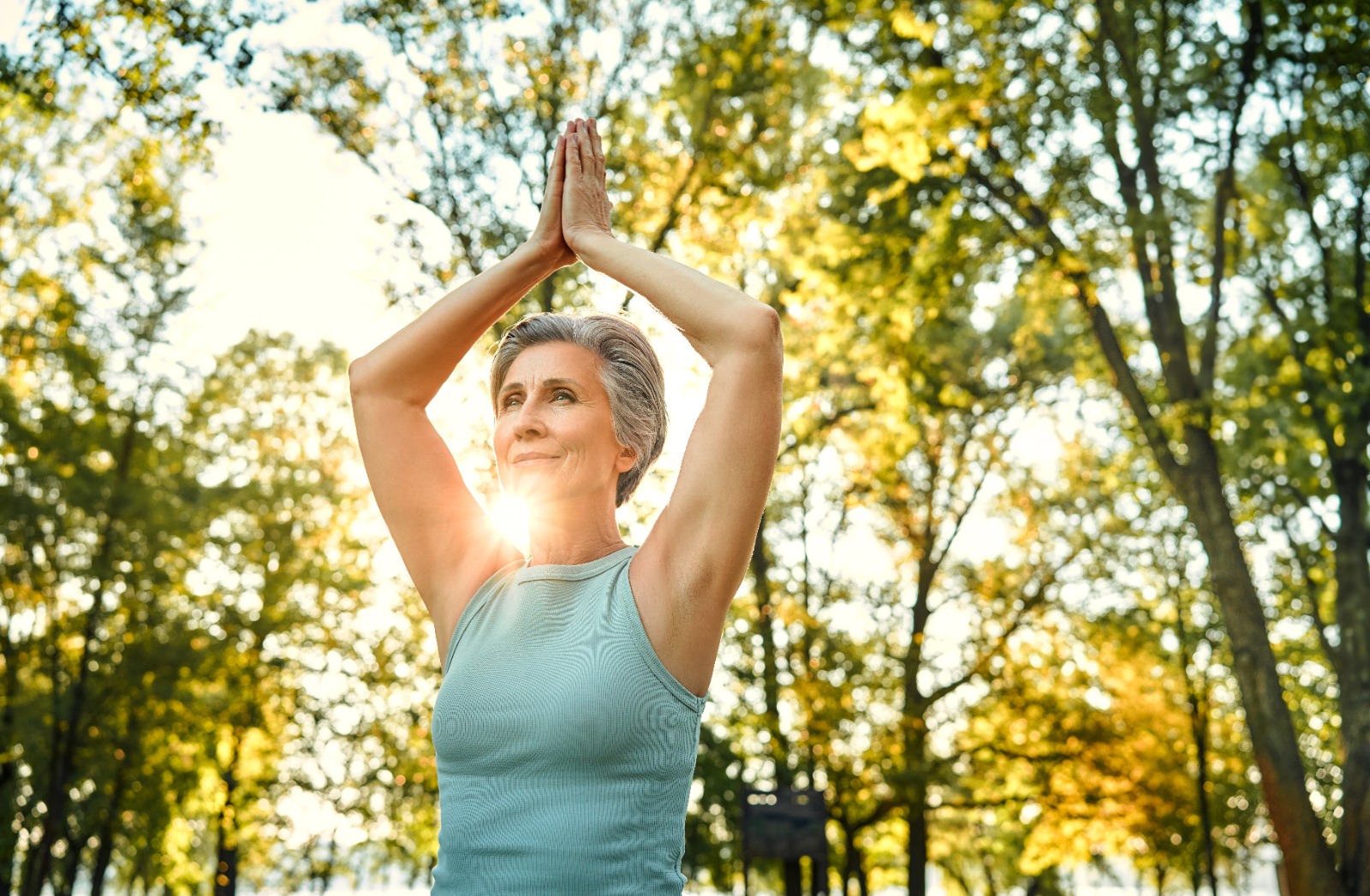“Sometimes the body whispers before it screams. Are we listening?” – Anonymous.
At first, it feels like typical midlife chaos. You’re tired even after 8 hours of sleep. Your joints ache after a gentle walk. The mood swings are real, the brain fog is thick, and the blues come out of nowhere.
So, like most women, you assume — “Ah. Must be menopause knocking.”
But what if it’s not just menopause?
What if these symptoms are actually your body’s way of crying out for something else — like Vitamin D?
Wait, What Does Vitamin D Have to Do with Menopause?
A lot more than you’d think. Vitamin D is often called the “sunshine vitamin,” but honestly, it’s more like your body’s behind-the-scenes producer — quietly running the show for everything from mood to muscles to immunity to hormone regulation.
Now, here’s the kicker: Vitamin D deficiency symptoms can look eerily similar to menopausal symptoms.
All of these can show up in both menopause and Vitamin D deficiency. Scary, right?
The Truth: 70% of Urban Indian Women Are Vitamin D Deficient
Let’s sit with that number for a second.
Despite being a tropical country blessed with sunlight almost all year round, up to 70% of Indian women — especially in urban areas — are Vitamin D deficient. Why?
Because we live indoors.
We wear SPF (yes, it blocks D synthesis).
We cover our skin.
Our diets aren’t rich in D.
And post-30, our ability to absorb Vitamin D naturally starts declining.
Menopausal and post-menopausal women are especially at risk — not only because of reduced sun exposure but also due to the drop in estrogen, which helps with Vitamin D metabolism.
Bottom line?
Your hormones might be doing their thing… but a silent Vitamin D deficiency might be intensifying every one of your menopause symptoms.
Symptom Check: When Menopause & Vitamin D Deficiency Collide
Let’s break it down further. Here are some of the most common menopause symptoms — and how they overlap with signs of a Vitamin D deficiency:
| Menopause Symptom | Also Caused by Vitamin D Deficiency? |
|---|
| Fatigue & Low Energy | ✅ Yes |
| Muscle Aches & Joint Pain | ✅ Yes |
| Mood Swings & Anxiety | ✅ Yes |
| Brain Fog & Poor Focus | ✅ Yes |
| Low Immunity | ✅ Yes |
| Bone Thinning (Osteopenia) | ✅ Yes |
Now imagine going through all of that without knowing that a good vitamin D supplement could ease the intensity?
The Role of Vitamin D in a Woman’s Body
If Vitamin D were a person, she’d be that one quiet friend who does 50 things behind the scenes and never takes credit.
Here’s what she’s silently doing for you:
Helps in calcium absorption → Stronger bones, reduced fracture risk
Regulates mood and emotional health → Especially important when hormonal changes affect serotonin
Boosts immune response → Fewer sick days, more resilience
Supports muscle strength → So you can keep dancing, lifting, moving freely
Plays a role in estrogen balance → Yes, it actually interacts with your sex hormones too
In short: Vitamin D is not a “bonus.” It’s a building block for women’s health, especially post-40.
So Why Don’t We Talk About It More?
Because the symptoms are so vague and slow that they rarely feel urgent.
Because no one taught us that bone health and mood might be micronutrient problems, not just “age.”
And let’s be honest — most of us don’t get regular 25(OH)D blood tests, unless we’re specifically told to.
Even our food isn’t always helping. Most Indian diets are low in natural Vitamin D sources (think: egg yolks, fatty fish, fortified foods).
The result? A slow, quiet slide into deficiency — worsened by stress, aging, and yes, menopause.
So What Can You Do?
Let’s get practical. If you’re between 40 and 60 and experiencing menopause or peri-menopause symptoms, here’s what you can do:
Step 1: Get Tested
Ask for a 25-hydroxy Vitamin D blood test. It’s simple, fast, and will tell you whether you need supplementation.
Step 2: Soak Up Some Sun
Aim for 15-20 minutes of sunlight daily, especially in the early morning. Expose face, arms, and legs if possible.
Step 3: Add a Vitamin D Supplement
If your levels are low, supplementation is key.
Look for vitamin D supplements that are easily absorbed and suited for women in midlife — ideally paired with calcium, magnesium, or K2.
Miror Bliss and Miror Revive are thoughtfully formulated with micronutrients that support hormone, bone, and energy health. And yes — they’ve got your D covered.
Step 4: Balance With Lifestyle
Prioritize resistance training (helps with bone density!)
Load up on omega-3s and good fats
Reduce caffeine & alcohol — they impact bone and calcium levels
Watch your stress levels — cortisol also interferes with D metabolism!
Real Talk: It’s Not Just About Health, It’s About Freedom
Vitamin D isn’t just about bones or blood reports.
It’s about whether you’ll wake up with energy.
Whether you’ll take that trip.
Whether your knees will let you dance at your daughter’s wedding.
Whether you’ll feel clear, calm, capable — or simply survive the day.
It’s about living fully in your own skin.
We’ve spoken to dozens of women who started a vitamin D supplement and felt the fog lift. The pain ease. The mood settle.
No magic. Just giving the body what it had been begging for.
When to Consider a Vitamin D Supplement Immediately:
You’ve had multiple fractures or bone scans showing osteopenia/osteoporosis
You’ve been indoors for months (hello, remote work!)
You feel tired all the time, despite sleeping
You have dark skin (melanin slows D absorption)
You’re vegetarian/vegan with limited dairy or fortified foods
Don’t wait for a major issue. Sometimes your body’s SOS is hidden in the “small” things.
Still Not Sure?
You’re not alone. Many of us have been conditioned to “deal with it” — that tired is normal, that pain is expected.
But we at Miror believe otherwise.
We believe thriving is the new baseline.
We believe midlife isn’t the end, but the start of what’s next.
And we believe your health should evolve with you — gracefully, powerfully, joyfully.
So if your menopause journey feels a little heavier than it should — don’t just blame the hormones.
Check your Vitamin D!!
And if you need support, knowledge, or just a nudge to listen to your body — we’re here.
Few Key Points to Note:
Vitamin D deficiency is super common among menopausal women
Its symptoms often mimic or worsen menopause
A simple blood test + the right vitamin D supplement can make a world of difference
Don’t ignore the signs — reclaim your clarity, strength, and vitality
Remember my wonderful beauties – midlife isn’t the end of the story. It’s the moment you pick up the pen.







